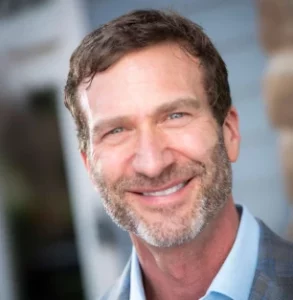
Hosted by Andy Keeler
Executive Summary: Why Even the Smartest DIY Investors Need Professional Financial Planning
In this episode of Financial Opportunities Uncovered,
Financial planning is like a system of interconnected gears—turn one, and several others move with it. While many people take pride in managing their own investments, this “do-it-yourself” approach often misses the bigger picture, leading to costly oversights and missed opportunities.
In our latest episode of the Financial Opportunities Uncovered podcast, Mark Beaver, CFP®, joins Andy Keeler to share real-world stories that reveal why even the most sophisticated DIY investors—doctors, lawyers, CPAs, and retired investment bankers—eventually turn to professional financial guidance from KN Family Wealth.
Hidden Costs of Going It Alone
One of the biggest blind spots for DIY investors is tax planning. Mark explains how active trading in taxable accounts can trigger unexpectedly high tax rates—and even increase Medicare premiums.
In one case, a client unknowingly paid 37% on investment gains when, with proper planning, they could have paid only 15%.
This isn’t just about saving money but protecting your long-term financial security.
Beyond Taxes: The Overlooked Details
Financial planning goes deeper than investments and taxes. Mark and Andy dig into:
- Estate planning pitfalls like unfunded trusts.
- Retirement income sequencing and how the order of withdrawals can drastically change outcomes.
- The challenge of keeping up with evolving strategies across tax law, markets, and estate planning.
As Mark puts it:
“It’s not just the decisions you make, but the opportunities you miss because you didn’t know they existed.”
Why Smart Clients Delegate
The most successful professionals don’t hire a financial advisor because they can’t manage money—they do it because they prioritize peace of mind.
One client summed it up perfectly: he wanted his wife cared for in his absence, valued the holistic perspective Keeler & Nadler provides, and knew he couldn’t keep up with the financial landscape across multiple disciplines.
By delegating, he gained something far more valuable than potential cost savings: confidence, time, and clarity for his retirement years.
The opinions expressed in this program are for general informational purposes only and are not intended to provide specific advice or recommendations.
It is only intended to provide education about finance, tax, retirement and related planning topics. To determine which investments or strategies may be appropriate for you, consult your financial, tax or legal advisor prior to implementing. Any past performance discussed during this program is no guarantee of future results.
Any indices referenced for comparison are unmanaged and cannot be invested into directly. As always please remember investing involves risk and possible loss of principal capital; please seek advice from a licensed professional.
Keeler & Nadler Family Wealth is a registered investment adviser. Advisory services are only offered to clients or prospective clients where Keeler & Nadler Family Wealth and its representatives are properly licensed or exempt from licensure. No advice may be rendered by Keeler & Nadler Family Wealth unless a client service agreement is in place.
